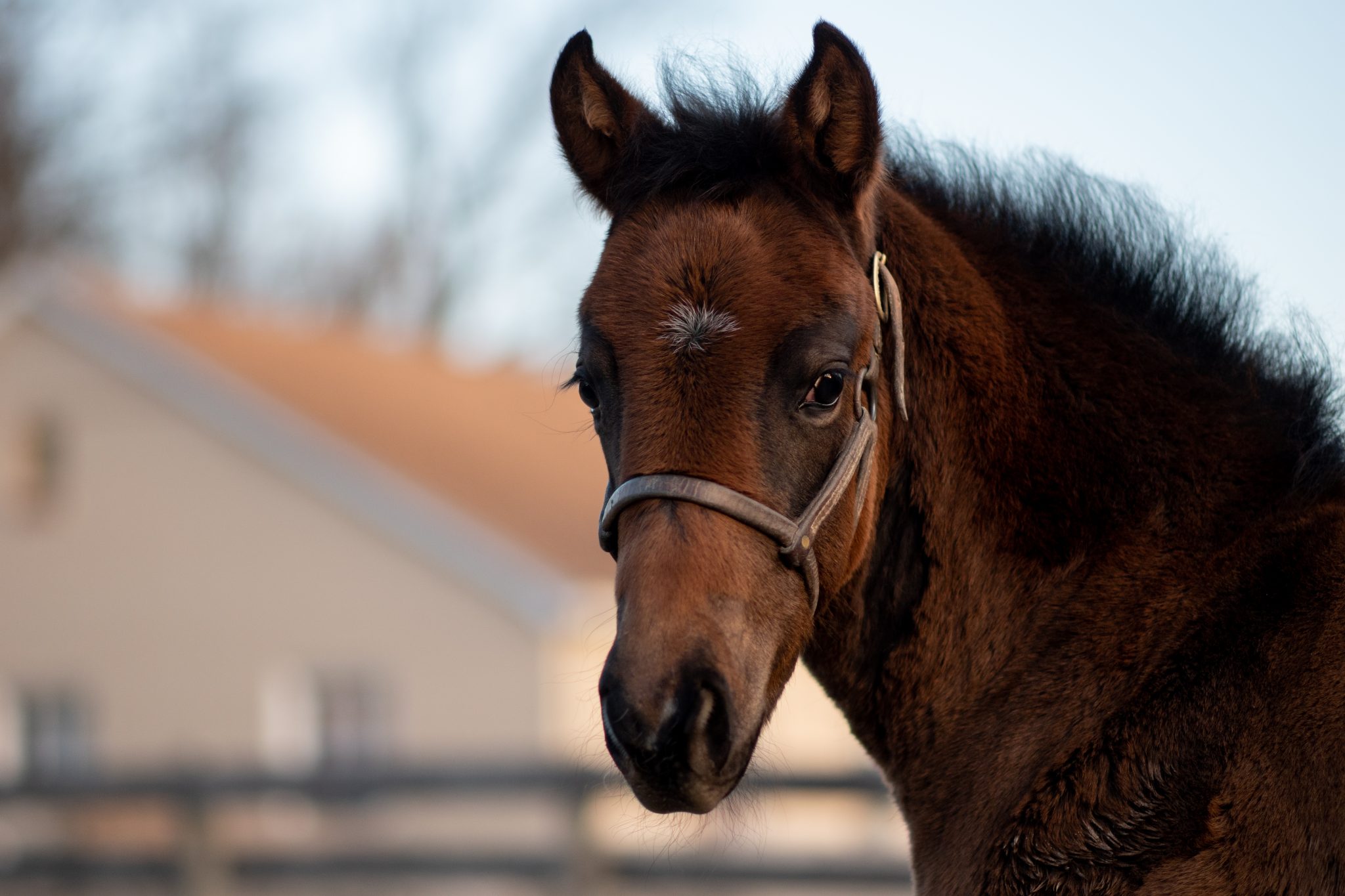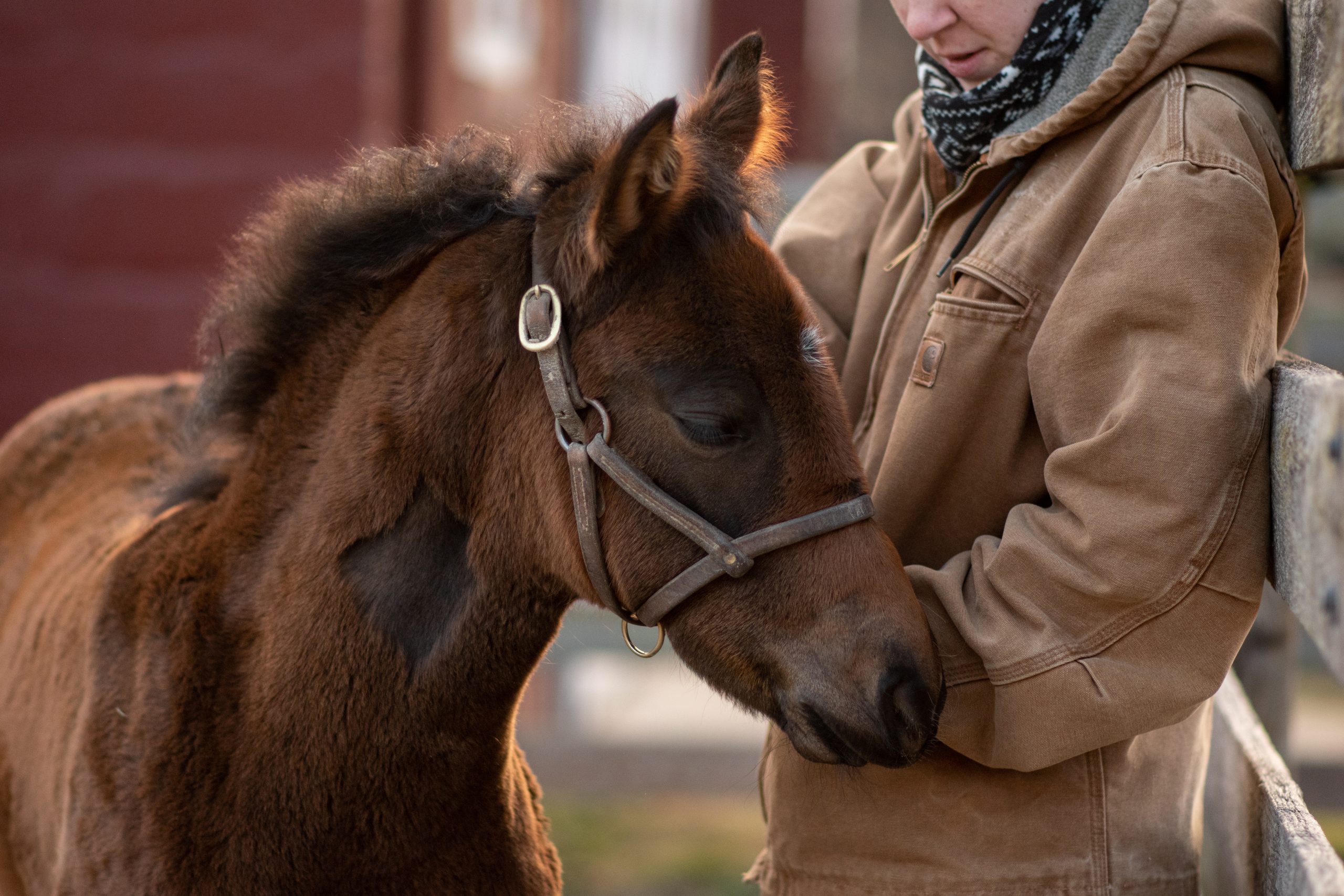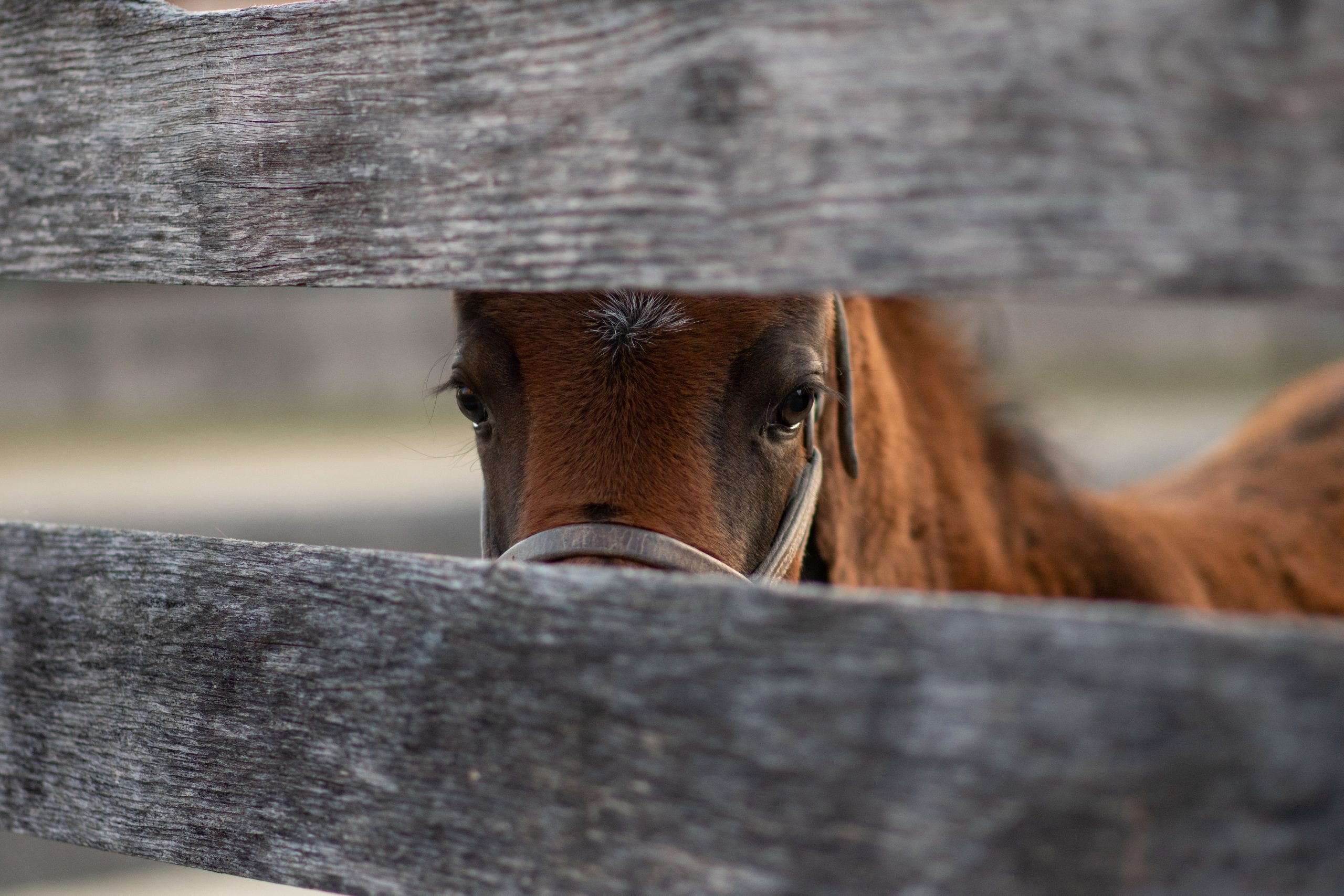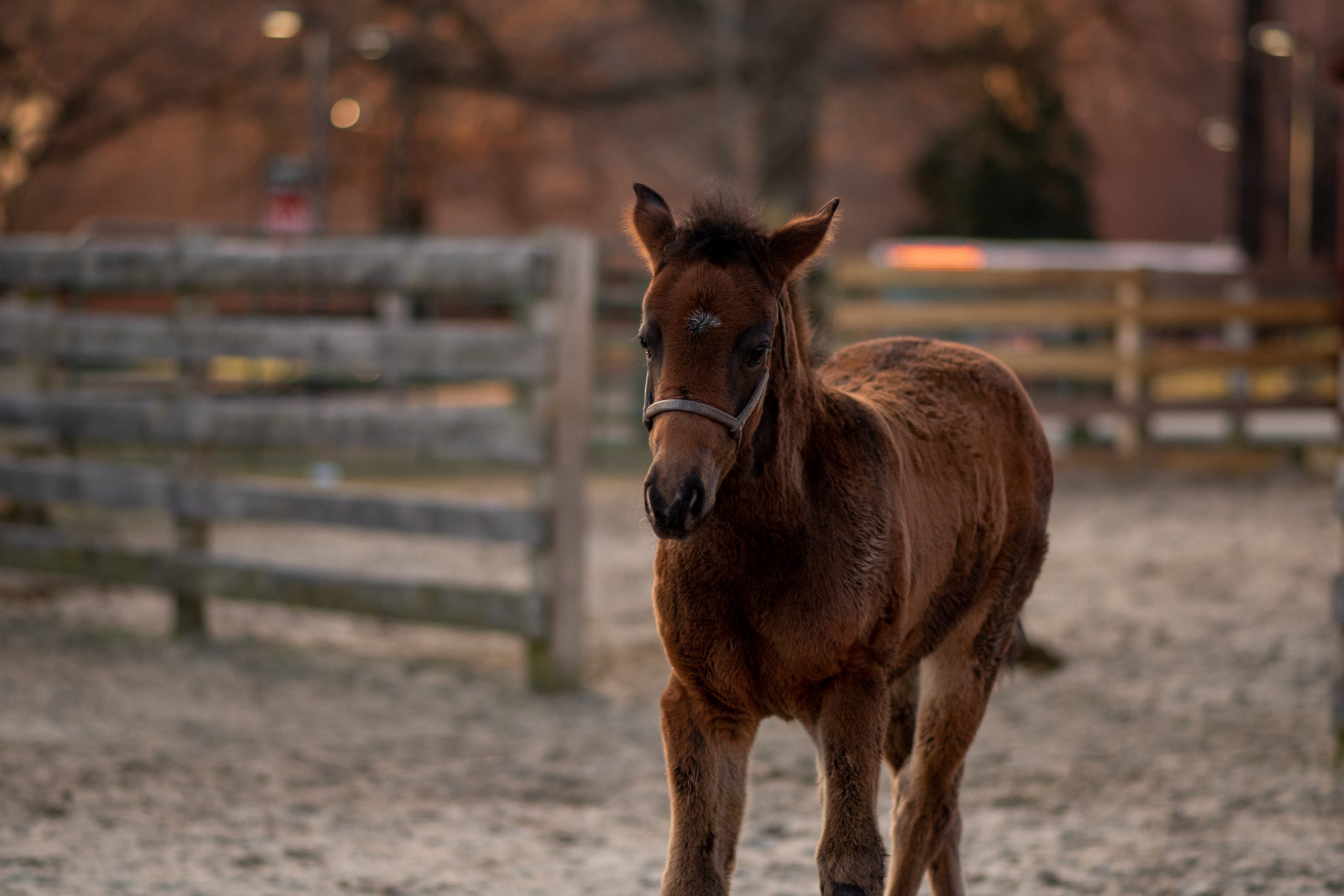On a cold, rainy December morning, Niraj Suresh was awoken by a 7 a.m. phone call from Rose Cardinal, the assistant farm manager at the University of Maryland Campus Farm.
“Hi Niraj,” she said. “Noble had a foal.”
On Dec. 6, workers at the campus farm were shocked by the surprise birth of a foal. No one had known the mother, a teaching horse named Noble, had even been pregnant. Farm staff are still adjusting to taking care of the unexpected new animal, named Out of the Blue or Blue for short.
Suresh, a senior animal sciences major, thought he had been dreaming when he received the call. Noble had been putting on weight, he said, but it hadn’t been noticeable.
“Some horses really show their pregnancy … their bellies drop down and you can tell they’re pregnant, but some horses hide it really well,” Suresh said.
Dr. Amy Burk, an animal and avian sciences professor at this university’s agriculture and natural resources college, agreed telltale signs of pregnancy such as a lower rear and belly weren’t present, but Noble gave a few hints in hindsight.
“I had two students [email me] ahead of time saying, ‘Hey, Noble seems more difficult, irritable, pinning her ears,’ which is an angry face … that was unusual for her,” Burk said.
Burk also said Noble had swollen milk veins, but another non-pregnant horse had gotten sick last year and had the same symptom. Noble was consequently monitored for an illness but nothing came of it.
Noble gave birth on her own at about 6 a.m. A freshman member of the farm staff found the foal shivering in the cold and sent word to Cardinal, who called Suresh and another student who took the equine reproduction class.
[Buzzing returns to UMD after summer storm took out bee hives]
Due to the unexpected nature of Blue’s birth, the foal faced several problems out of the gate.
“Both Noble and the foal were on medication for a series of things, some of which probably would have happened regardless of whether we knew Noble was pregnant or not, and some things that probably could have been avoided, had we known,” farm manager Megan McLean said.
During her pregnancy, Noble ate feed that contained a plant called fescue, which is fine for riding horses but limits milk production in mares, McLean said. After giving birth, Noble was switched to feed containing alfalfa and grain, and was put on a drug to increase her milk production.
Drinking the mare’s milk is important for the development of the foal’s immune system, McLean explained.
Because of Noble’s low milk production, the foal needed a plasma infusion to gain extra immunity. Blue needed antibiotics and medications for a UTI and ulcer prevention. She also received enemas to make sure she was defecating properly.
Suresh, senior animal sciences major Emma Ball and two other students from Burk’s equine reproduction class stayed throughout the foal’s first few nights to care for her.
“She was struggling a little bit the first night and so, we wanted to make sure that she wasn’t exhausting herself,” Ball said.
The students checked Blue’s pulse, temperature and respiration often and administered medications. They watched her around the clock from the barn shack or the animal sciences building, according to Ball. Blue also needed help standing up to nurse and lying down.
[Eggs-traordinary prices: Here’s how egg shortages are affecting UMD]
A power outage at 2 a.m. on the foal’s second night took out the heat lamps keeping Noble and the foal warm. The students improvised, using the headlights of someone’s car and blankets to keep them warm.
After a difficult three days, Blue’s medicine schedule was adjusted to more regular hours and after two weeks, the foal was strong enough to be self-sufficient. Ball was happy to see the foal improve.
“The first few days, she was pretty weak … it was very easy to push her around when we needed to give her meds,” Ball said. “Now … she’s running around with her mom and playing, and she’s very friendly with everybody, so it’s really nice to see her like that.”
To raise support for Blue and Noble’s additional medical care and feed costs, the campus farm staff ran a fundraiser on Launch UMD that raised $5,355 — more than $1,000 more than the campaign’s $4,000 goal.
Blue’s name came from a poll launched alongside the fundraiser. Out of the Blue is a reference to the circumstances in which she was born.
Currently, both mother and child are doing well and are living at the Central Maryland Research and Education Center Clarksville facility, where there is more pasture for Noble to raise Blue for the next six months.
The university isn’t equipped with the space or resources to raise Blue, so she may be sent to a farm that has a yearling field where she can socialize with other young horses while Noble returns to the campus. Blue and Noble may also be sold together, Cardinal said.
“We haven’t 100 percent made any decisions with what’s happening with [Blue],” Cardinal said. “We’re just taking it as it comes along.”






